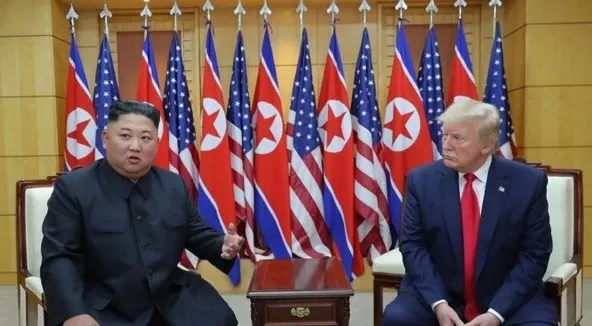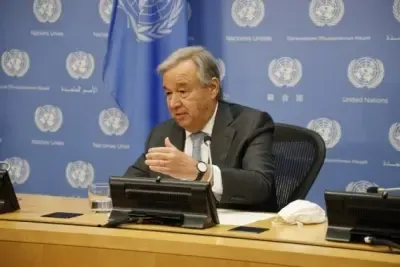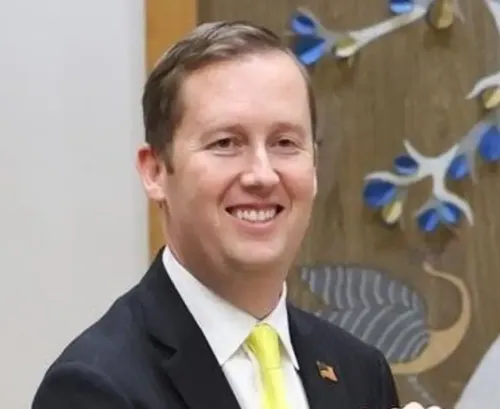Are Kim and Trump’s Relations Really ‘Not Bad’?

Synopsis
Key Takeaways
- Kim Yo-jong claims personal ties with Trump are 'not bad.'
- Denuclearisation talks have been dismissed by North Korea.
- South Korea emphasizes the importance of dialogue.
- North Korea is strengthening ties with Russia.
- Geopolitical tensions continue to rise.
Seoul, July 29 (NationPress) The influential sister of North Korean leader Kim Jong-un stated on Tuesday that the personal relations between the leaders of North Korea and the United States are 'not bad', while dismissing any discussions on Pyongyang's denuclearisation.
Kim Yo-jong, who is the vice department director of the ruling party's Central Committee, made this assertion as US President Donald Trump expressed his desire to reconnect with the North's leader.
'I do not wish to dismiss the fact that the personal relationship between our state head and the current US president is not bad', Kim stated in comments published by the Korean Central News Agency (KCNA).
'However, if the personal relations between the top leaders of the DPRK and the US are meant to lead to denuclearisation, it can only be seen as a mockery of the other side', she elaborated.
DPRK stands for North Korea's official title, the Democratic People's Republic of Korea.
These comments followed a statement from a White House official to Yonhap News Agency, indicating that Trump is still open to engaging with the North Korean leader to achieve a 'fully denuclearised' North Korea.
Speculations linger that Trump might look to reignite his diplomatic efforts with Kim, which previously led to three face-to-face meetings, including the historic summit in Singapore in 2018. However, the Hanoi summit in 2019 concluded without an agreement due to disagreements over the North's denuclearisation actions in exchange for sanctions relief, as reported by Yonhap News Agency.
Referring to the official's comments, which she termed as the US's 'unilateral assessment', Kim Yo-jong emphasized, 'The year 2025 is neither 2018 nor 2019', urging a recognition of her nation as a nuclear power.
'Any attempt to negate the DPRK's status as a nuclear weapons state ... will be completely rejected', she asserted. 'It is imperative to acknowledge that a confrontational path is not advantageous for either of the nuclear-armed nations.'
She also called on the US to explore alternative approaches to North Korea based on 'new thinking.'
In reaction to Kim's statements, the South Korean unification ministry reiterated Seoul's commitment to resume dialogue with the US aimed at solving North Korea's nuclear dilemma.
'Both South Korea and the US hold a steady position that they are open to discussions with North Korea to foster peace on the Korean Peninsula and to resolve the North Korean nuclear matters peacefully,' a ministry representative commented.
'We actively support the resumption of North Korea-US discussions to ensure peace on the peninsula and stability in Northeast Asia,' the official affirmed, vowing to continue efforts towards these talks.
Experts suggest that North Korea has reaffirmed its position of not agreeing to denuclearisation talks but seems to leave room for discussions with the US on different subjects.
Kim's statements came just a day after she released another communication through the KCNA asserting that Pyongyang will not engage in talks with Seoul and criticized it for 'blindly adhering' to the South Korea-US alliance.
The statements emerge as North Korea is forging closer ties with Russia in defense, economy, and other sectors amid the ongoing Russia-Ukraine conflict, facilitating Pyongyang's ability to bypass international sanctions by relying on Russia for essential resources.








